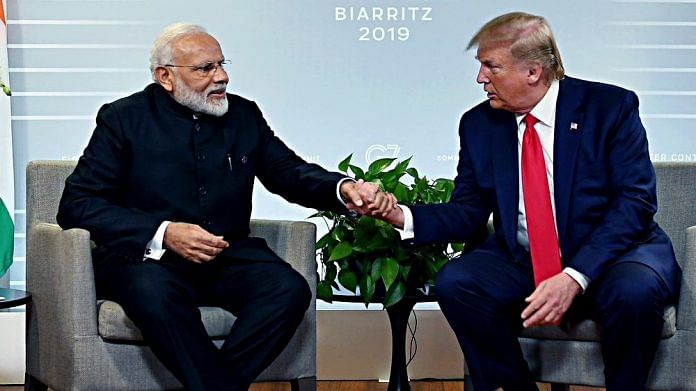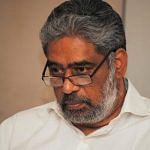 Economic Graffiti: The $5 trillion arithmetic
Economic Graffiti: The $5 trillion arithmetic
Kaushik Basu | C. Marks Professor at Cornell University and former Chief Economist and Senior Vice President, World Bank.
The Indian Express
Basu deciphers the arithmetic behind the economic growth India needs to achieve a $5 trillion economy by 2024, a target constantly reiterated by Prime Minister Narendra Modi. He argues that India needs a GDP growth of 10 per cent for the next six years, a feat only achieved by China. Furthermore, this needs to happen in terms of dollars and not rupees, because even if India achieves a 10 per cent growth rate in terms of rupees, the rupee will depreciate by 10 per cent to match the inflation differential, “and so the larger GDP of India in rupee terms, when converted to dollars will show no growth”.
Pratap Bhanu Mehta | Contributing Editor
The Indian Express
Mehta describes the emergence of a new global faultline in politics. He refers to the upcoming US presidential elections and notes that if the contest ends up being between Donald Trump and Bernie Sanders, it will be a contest between capitalism and democracy. He argues that today, “There are those who think that the self-protection functions of democracy stand in the way of capitalism; and there are those who think that capitalism has seriously eroded the self-protection functions of democracy.” And Sanders and Trump make these stakes even clearer and thus, the competition will ultimately be about “whether there is too much democracy or too much capitalism, and where the balance between the two lies”.
C. Raja Mohan | Director, Institute of South Asian Studies, National University of Singapore
The Indian Express
Mohan discusses the shift in US foreign policy since Trump assumed office and notes that “America is at an inflection point”. He argues that India needs to “come to terms with the profound changes unfolding in America” and recommends that Delhi “unlearn” some of its assumptions about US policy, especially with regards to the Indian diaspora. “While the diaspora is important and could be of some value in dealing with Trump, it can’t override the deeper forces animating American politics,” notes Mohan.
 The long and the short of Trump versus the rest
The long and the short of Trump versus the rest
Krishna Srinivasan | Former foreign secretary
The Hindu
For Srinivasan the most important aspect about US President Donald Trump is the boost in support for him from his own party based which was absent in the 2016 presidential election. He states, “His approval among Republicans is around 90% despite his hostile takeover of the party while branding himself as a warrior against elites, fake news and corrupt establishment”. He argues that this support will help Trump in the upcoming elections.
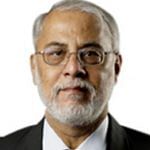 The other asymmetrical war won
The other asymmetrical war won
Manoj Joshi | Distinguished fellow, ORF
The Economic Times
Joshi discusses the Supreme Court’s judgment that women should be considered for command positions in the Indian Army, and criticises the central government and the Army’s “pig-headed approach” to the issue. Women “have something else going for them” which could be psychological strength, he adds.
 Reforming competition law for the digital age
Reforming competition law for the digital age
Ananth Padmanabhan | Dean, Academic Affairs, Sai University & visiting fellow, CPR
Hindustan Times
Padmanabhan finds that competition law fails to capture certain realities of e-commerce in India. For example, how sellers on a site are often in an “unequal bargaining position with the digital platform” and how startups themselves struggle to compete with “dominant technology platforms …[that] control vast amounts of data”.
 India’s disturbing trauma narrative
India’s disturbing trauma narrative
Vikram Patel | Pershing Square Professor of Global Health at Harvard Medical School
The Hindu
Patel discusses instances of trauma inflicted by institutions on children, in light of the sedition case in Karnataka, where young children were interrogated by the police, without the presence of a social worker or guardian, for allegedly putting up a pro-CAA play. Patel argues, “These traumatic experiences are not only a violation of the fundamental rights of the child but are severely damaging to their mental health”. Furthermore, he states that the most “damaging kind of trauma” results in “toxic stress”, a term used to describe a child’s experience of persistent adversity or abuse.
 Start with local languages for the ease of doing business
Start with local languages for the ease of doing business
Anantha Nageswaran | Member of the Economic Advisory Council to the Prime Minister
Madhuri Saripalle | Associate professor, IFMR Graduate School of Business, Krea University
 Mint
Mint
For the ease of doing business in India, the authors recommend that state governments and GST councils make all rules and regulations available in local languages “for ordinary folks to understand”. “India may have paid a heavy price for relying on English as its language of governance and business,” they conclude.
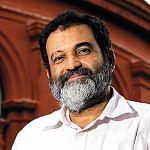 Discriminating against Indian investors
Discriminating against Indian investors
Mohandas Pai | Chairman, Aarin Capital Partners
S. Krishnan | Tax consultant
 Financial Express
Financial Express
With regard to the recently announced tax exemption for sovereign wealth funds to boost infrastructure, Pai and Krishnan ask why the government didn’t try to raise resources from domestic investors. The Finance Minsiter should have “introduced an exclusive capital gains tax regime for financial assets” so that “investments in equity and debt instruments are taxed similarly for both Indian and foreign investors”, they explain.
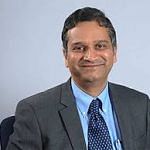 How RBI made monetary policy more effective
How RBI made monetary policy more effective
Madan Sabnavis | Chief economist, CARE Ratings
The Financial Express
Sabnavis points out the other ways the RBI has used to control market forces, given that the repo rate is becoming less impactful in influencing lending rates. These include open market operations (OMOs), “linking specific loans like SME and retail to pre-announced benchmarks” etc.
 The global impact of the Wuhan crisis
The global impact of the Wuhan crisis
Akash Prakash | With Amansa Capital
Business Standard
With questions surrounding the “extent and seriousness” of the coronavirus outbreak abound, Prakash predicts that China will not be seen as “a reliable member of the global economic system”. With pre-existing issues from the US-China trade war, he predicts “many multinational companies will continue to diversify their sourcing away from China” just like Vietnam has.
Today’s Editorials
The Times of India: TOI welcomes the Supreme Court’s historic judgment that all women officers will be considered for permanent commission, in ‘Officer and a lady’. Calling it a big step for gender equality in the army, the daily says that it will pave the way for women officers being granted superior responsibilities. It notes that studies prove that men are prone to taking irrational risks during war and thus, having more women officers in command, including in combat units, would reduce the risk in such warfare – which will have devastating consequences otherwise.
The Hindu: Hindu comments on the Supreme Court’s recent verdict ruling that telecom companies mustpay their dues, in ‘A royal mess’. The possible loss of jobs in the telecom sector and the emergence of a duopoly if Vodafone shuts shop, concern Hindu. The government has to examine what it can do to save the situation without disrespecting the Court’s verdict, suggests the daily.
Hindustan Times: In ‘Hold Delhi Police accountable’, HT writes about the viral video from Jamia where police can be seen lathi charging the students peacefully studying in the library. It says that the video refutes Delhi Police’s claims that the police did not enter or vandalise the library. It notes that the police, instead of being impartial and following the law, has been complicit in violence and appears to be acting as an adjunct of political masters. The police must initiate strict action against those who committed the violence.


